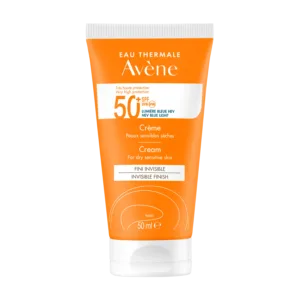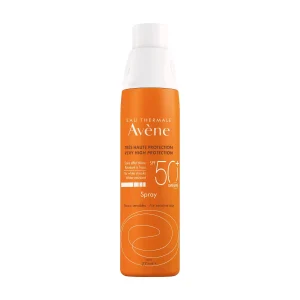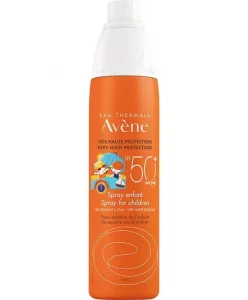
Welcome to Sun Awareness Week, a time to focus on the importance of protecting your skin and eyes from the harmful effects of the sun. As you soak up the sun’s rays, it’s crucial to remember that UV radiation can damage your eyes, leading to a variety of eye conditions and diseases. This week, we encourage you to take steps to protect your eyes from UV, whether you’re at the beach or simply running errands around town. From wearing protective eyewear to seeking shade during peak sun hours, let’s explore the best ways to keep your eyes healthy and safe during Sun Awareness Week.
What is UV radiation?
UV radiation is a type of energy that is produced by the sun. It is not visible to the naked eye but can be detected using special equipment. There are three types of UV radiation: UVA, UVB, and UVC. UVC radiation is the most dangerous but is mostly absorbed by the ozone layer and does not reach the earth’s surface. UVA and UVB radiation can cause damage to the skin and eyes and are the main types of UV radiation that you need to protect yourselves from.
Why is UV radiation harmful to the eyes?
Firstly, overexposure to UV radiation can cause short-term and long-term damage to the eyes. In the short term, it can cause a condition called photokeratitis, which is similar to a sunburn of the cornea. This can cause redness, pain, and temporary vision loss. Long-term exposure to UV radiation can increase the risk of developing cataracts, macular degeneration, and other eye conditions.
- Cataracts are a clouding of the eye’s lens, which can cause blurry vision, difficulty seeing at night, and sensitivity to light.
- Macular degeneration is a condition that affects the macula, the part of the retina responsible for central vision. It can cause blurred or distorted vision, and in some cases, can lead to permanent vision loss.
Secondly, protecting your eyes from UV radiation is important for maintaining good eye health. Regular exposure to UV radiation can cause cumulative damage to the eyes, which can increase the risk of developing eye conditions over time. By taking steps to protect your eyes from UV radiation, you can reduce your risk of developing these conditions.
Finally, protecting your eyes from UV radiation is important for overall health and well-being. The eyes are a vital part of the body, and good eye health is essential for performing everyday tasks such as reading, driving, and working. By protecting your eyes from UV radiation, you can help to maintain good eye health and ensure that you can continue to perform these tasks comfortably and safely.
In conclusion, protecting your eyes from UV radiation is important for short-term and long-term eye health, overall health and well-being, and maintaining good vision. By taking simple steps such as wearing sunglasses with UV protection, wearing a hat, and avoiding direct sunlight, you can reduce your risk of developing eye problems in the future.
How can you protect your eyes from UV radiation?
Here are some of the best ways to keep your eyes healthy and safe during Sun Awareness Week:
1- Wear sunglasses with 100% UV protection: When purchasing sunglasses, make sure they offer complete protection from both UVA and UVB rays. Look for sunglasses with a label or tag indicating that they block 100% of UV rays.
2- Wear a hat: A wide-brimmed hat can provide additional shade to your eyes and help reduce the amount of UV radiation reaching them.
3- Stay in the shade: Try to limit your exposure to direct sunlight, especially during peak hours when the sun’s rays are strongest. Seek shade under trees or umbrellas to protect your eyes.
4- Avoid tanning beds: Tanning beds can emit harmful UV radiation that can damage your eyes just like the sun.
5- Keep your eyes moisturized: UV radiation can dry out your eyes, causing discomfort and potential damage. Use artificial tears or lubricating eye drops to keep your eyes moist and healthy.
6- Use sunscreen: When you are outside, make sure to apply sunscreen to your face and neck, as well as any other exposed areas of your skin. Look for a sunscreen with a high SPF and reapply it regularly.
Our choice of sunscreens:
For oily and acne-prone skin:
Eau Thermale Avène Very High Protection Fluid SPF 50+
For dry skin:
Eau Thermale Avène Very High Protection Cream SPF50+
For the body:
Eau Thermale Avène High Sun Protection Spray SPF 50+
For children’s sensitive skin:
Eau Thermale Avène Spray for Children SPF 50+
7- Be aware of reflective surfaces: UV radiation can be reflected off surfaces such as water, snow, sand, and concrete. This means that even if you are in the shade, you can still be exposed to UV radiation. Make sure to take extra precautions when you are in these types of environments.
8- Get regular eye exams: Regular eye exams can help detect any potential eye problems or damage caused by UV radiation. Make sure to schedule an appointment with your eye doctor for a comprehensive eye exam.
By following these tips, you can help keep your eyes healthy and safe from the damaging effects of UV radiation during Sun Awareness Week and beyond.
Do people with dark skin need sunscreen?
Yes, people with dark skin need sunscreen just as much as people with fair skin. While it is true that darker skin tones have more melanin, which provides some natural protection against UV radiation, it is still important to wear sunscreen to protect the skin from sun damage.
UV radiation can still cause damage to your skin even if you have dark skin, and this damage can lead to a range of health problems, including skin cancer. In fact, skin cancer can be more dangerous for people with dark skin, as it is often diagnosed at a later stage when it has already spread to other parts of the body.
Additionally, sun damage can also cause premature aging, hyperpigmentation, and other cosmetic concerns. These effects are unrelated to skin color and can occur in people with all skin types.
Therefore, it is important for everyone, regardless of skin color, to wear sunscreen with an appropriate SPF to protect their skin from the harmful effects of UV radiation. It is also important to reapply sunscreen every two hours, or more frequently if you are sweating or swimming.
In summary, people with dark skin need sunscreen just as much as people with fair skin to protect their skin from sun damage and reduce the risk of skin cancer and other health problems.
Conclusion
Sun Awareness Week is an important reminder of the importance of protecting our eyes from UV radiation. By taking simple steps such as wearing sunglasses with UV protection, wearing a hat, and avoiding direct sunlight, we can reduce our risk of developing eye problems in the future. So next time you head outside, remember to protect your eyes from the sun’s harmful rays.













